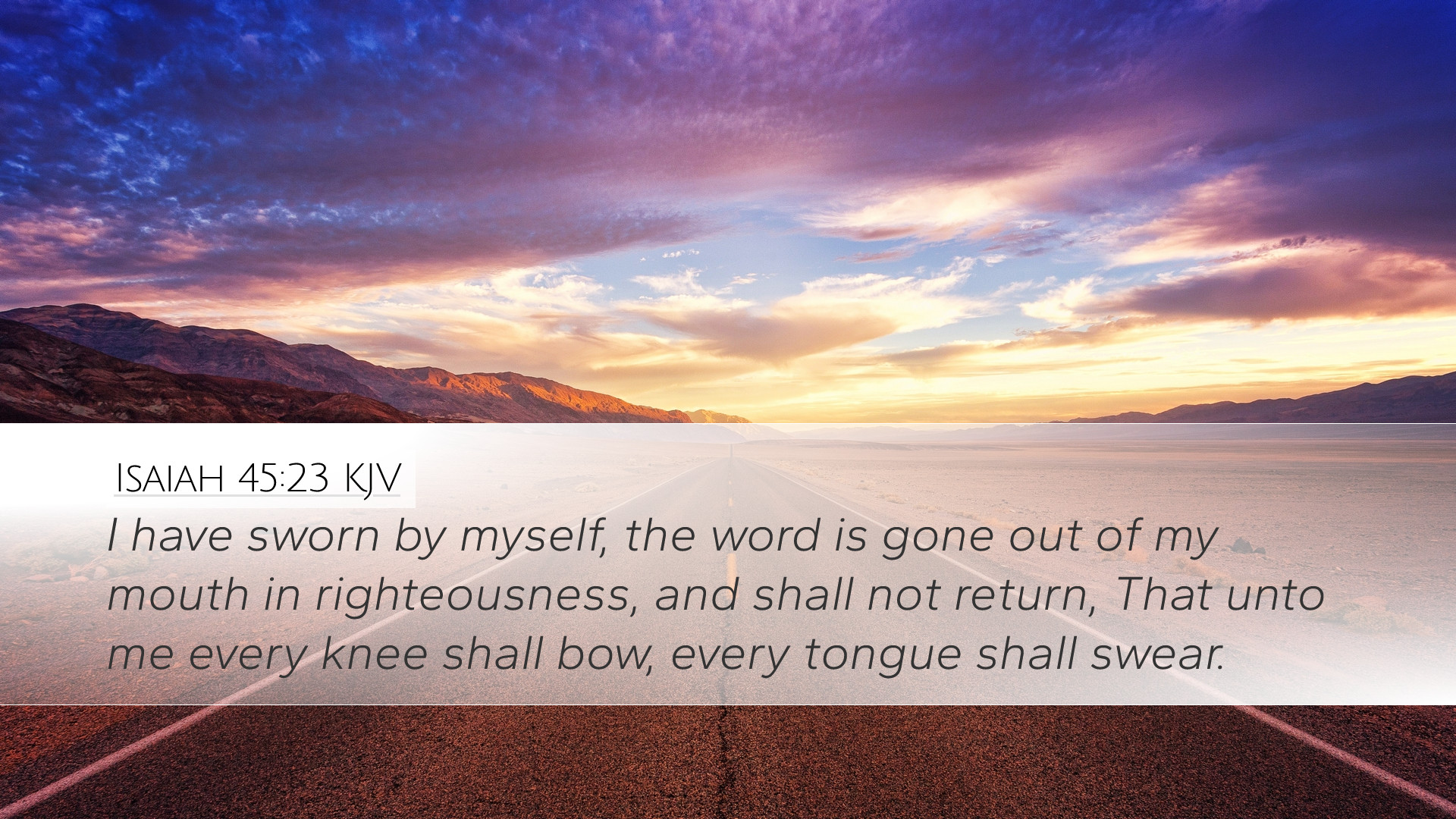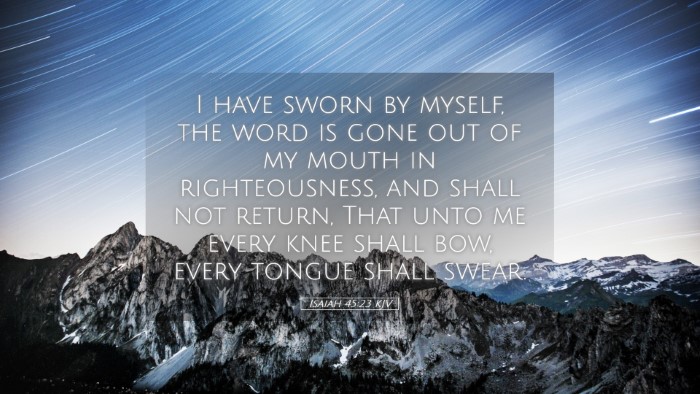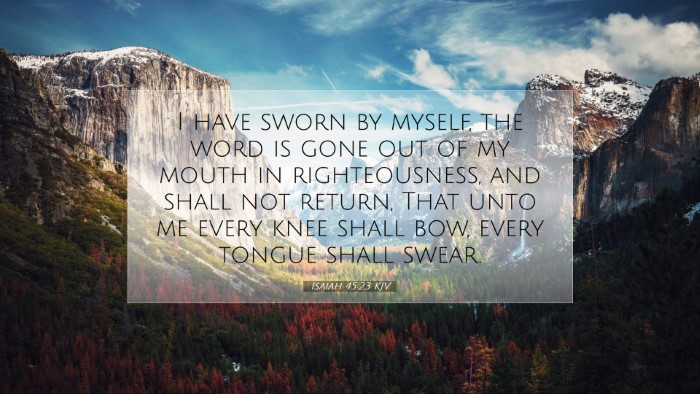Commentary on Isaiah 45:23
Verse Text: “I have sworn by myself, the word is gone out of my mouth in righteousness, and shall not return, That unto me every knee shall bow, every tongue shall swear.” (Isaiah 45:23, KJV)
Introduction
This powerful verse from the book of Isaiah encapsulates the sovereignty of God and His ultimate authority over all creation. It serves as a proclamation of His divine will, emphasizing that all nations and individuals will acknowledge His reign and sovereignty.
Historical Context
Isaiah prophesied during a tumultuous time in Israel’s history, marked by disobedience and impending judgment. The nation faced challenges from surrounding nations, and the prophetic message was one of both warning and hope—reminding them of God's unwavering commitment to His covenantal promises.
Verse Analysis
- “I have sworn by myself”: This phrase indicates the gravity and certainty of God's declaration. In Scripture, God swears by Himself because there is no higher authority. This underscores His faithfulness.
- “The word is gone out of my mouth in righteousness”: God’s proclamations are just and right. Unlike human declarations, which may be flawed or biased, God's word is pure and leads to righteousness.
- “And shall not return”: This signifies that God's decrees are irrevocable. Once proclaimed, they will come to pass according to His perfect will.
- “That unto me every knee shall bow”: This anticipates a universal acknowledgment of His authority. It reflects the core belief that all creation will ultimately recognize and submit to God’s sovereignty.
- “Every tongue shall swear”: This emphasizes verbal acknowledgment of God's lordship. It points to confession and recognition of His majesty and power.
Theological Insights
This verse has significant theological implications as it pertains to the doctrines of God's sovereignty, judgment, and grace:
- Sovereignty of God: The assertion that every knee will bow indicates that all-powerful sovereignty of God over the lives of individuals and nations alike. God is not only a figure of worship but also the ultimate authority.
- Universal Submission: The universal nature of this bowing suggests that God’s rule is not limited to Israel; it extends to all nations and peoples. This is a foreshadowing of the eventual kingdom of God.
- Judgment and Justice: God’s word being one of righteousness highlights His nature as a just judge. There is an accountability factor—humans will account for their actions and decisions.
- Grace and Redemption: While the passage speaks of judgment, it also holds a promise of redemption through the acknowledgment of God’s sovereignty. The act of bowing and swearing allegiance carries the potential for repentance and relationship.
Commentary Integration
Insights from respected commentaries illuminate this text further:
- Matthew Henry: He elaborates on the certainty of God's promises, remarking that what He decrees is bound to happen. Henry notes the emphasis on acknowledgment of God being the one true God, which echoes throughout Scripture.
- Albert Barnes: Barnes emphasizes the idea that this verse signifies the inevitability of God's authority manifesting at the time of judgment. He connects this acknowledgment with the New Testament, where Paul explicitly mentions this in Philippians 2:10-11, reinforcing the universal recognition of Christ.
- Adam Clarke: Clarke points out the implications for both Jews and Gentiles, seeing this verse as a promise that the knowledge of God will cover the earth. He emphasizes the need for a voluntary acknowledgment rather than coerced submission, indicating that such a revelation should lead to genuine repentance.
Practical Applications
For pastors, students, and theologians, this verse invites profound reflection and practical applications, including:
- Worship and Reverence: There is a call to deeper reverence in worship, recognizing the authority of God over all aspects of life.
- Evangelism: Understanding that all will ultimately acknowledge God’s sovereignty can drive a sense of urgency in sharing the Gospel with others.
- Hope in Justice: Amidst societal injustices, this verse is a reminder that God’s righteous judgment will ultimately prevail, offering hope to those who suffer injustice.
- Personal Reflection: Individuals are invited to examine their own hearts to ensure they live in acknowledgment of God’s authority, embracing humility before Him.
Conclusion
Isaiah 45:23 serves not only as a prophetic proclamation but also as a profound reminder of God's unyielding sovereignty and righteousness. It calls believers into a deeper commitment to recognizing and surrendering to His authority, while also extending a message of hope and grace to all of creation. As we reflect on this powerful verse, may it inspire a continual posture of worship, evangelism, and personal accountability in our walk with God.


